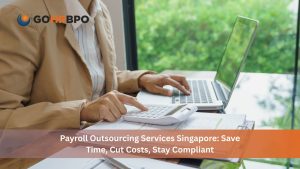Ever wondered, “Is there a minimum wage in Singapore?” Unlike many countries, Singapore doesn’t have a blanket minimum wage Singapore. Instead, it champions the Progressive Wage Model (PWM), a unique approach that emphasizes skill development and productivity improvement for better wages.
This blog dives deep into the intricacies of wage regulations in Singapore, exploring the impact of PWM, minimum wage requirements for various work passes (Employment Pass, S Pass, Work Permit), and the Local Qualifying Salary (LQS). We’ll also unveil some hidden gems to ensure fair compensation for your workforce.
The Allure of a Minimum Wage Singapore
The minimum wage Singapore serves a critical purpose in many countries. It establishes a baseline for employee compensation, protecting workers from exploitation and fostering social well-being. It aims to:
- Combat Income Inequality: By setting a minimum threshold, the government strives to bridge the gap between high and low earners.
- Promote Financial Stability: A minimum wage Singapore** (or a similar system) equips workers with a safety net, allowing them to meet basic needs.
- Reduce Exploitation: It discourages employers from offering unfairly low wages, ensuring a fairer playing field in the labor market.
Why Singapore Opts for a Different Path?
While the concept of a minimum wage Singapore might seem appealing, Singapore has chosen a distinct path. Here’s why:
- Focus on Skill Development: The PWM incentivizes employees to acquire new skills, leading to higher wages and career advancement.
- Boosting Productivity: By empowering workers with better skills, businesses benefit from increased productivity and economic growth.
- Market-Driven Wages: Wages are determined by market forces, attracting talent based on skills and experience.
The Local Qualifying Salary (LQS): A Balancing Act for Businesses
The LQS plays a crucial role in Singapore’s employment landscape, particularly when it comes to foreign worker quotas. Here’s the gist:
- What is the LQS? The LQS is the minimum salary a local employee must earn to be counted towards a company’s foreign worker quota entitlement. Think of it as a way to encourage businesses to prioritize hiring local talent.
- Impact on Businesses: As of July 1, 2024, the LQS has risen to $1,600 monthly. This means companies need to factor in potential increases in manpower costs to maintain their foreign workforce composition while complying with quota requirements.
Here’s a breakdown of how the LQS translates to minimum hourly wages:
- Part-time Workers: Effective July 1, 2024, the minimum hourly rate for LQS compliance is $10.50 for part-timers working less than 35 hours per week.
- Monthly Rated Part-timers: The hourly rate is calculated by dividing the total monthly gross wages by total working hours. It must meet the minimum of $10.50 per hour.
Remember: Non-compliance with LQS regulations can lead to difficulties in renewing work passes or obtaining new ones.
Navigating Work Passes: Minimum Salary Thresholds
While there’s no minimum wage Singapore in the traditional sense, there are minimum salary requirements for specific work passes:
Employment Pass (EP): This pass caters to foreign professionals, managers, and executives. The minimum qualifying salary is:
- Current: $5,000 per month (general) and $5,500 per month (financial services)
- From January 1, 2025: $5,600 per month (general) and $6,200 per month (financial services)
S Pass (Skilled Workers): This pass targets skilled foreign workers. The minimum salary requirements are:
- Current: $3,150 per month (general) and $3,650 per month (financial services)
- From September 1, 2025 (applications) and 2026 (renewals): $3,300* per month (general) and $3,800* per month (financial services) (* To be finalized by Ministry of Manpower)
Work Permit: There’s no minimum salary requirement for obtaining a Work Permit. However, employers are encouraged to offer fair compensation based on skills and experience.
Beyond Minimum Wage Singapore: Building a Strong Employer Brand
Singapore’s job market is highly competitive. Offering competitive salaries, alongside a strong employer brand, attracts and retains top talent. Here’s how GOHRBPO can help:
- Payroll Outsourcing: Streamline payroll processing, ensuring accurate and timely payments for your employees.
- Compliance Management: Stay up-to-date with complex employment regulations and avoid costly penalties.
- HR Support: Leverage GOHRBPO’s expertise to manage compensation packages, benefits, and other HR tasks.
By outsourcing payroll and HR to GOHRBPO, you can free up valuable time and resources to focus on core business activities.
The Importance of Competitive Compensation
Beyond complying with minimum wage regulations, offering competitive compensation is vital for attracting and retaining top talent. A well-structured compensation package includes:
- Base Salary: Ensure your base salaries are aligned with industry standards and the experience level of your employees.
- Variable Pay: Consider implementing performance-based bonuses or incentives to motivate employees and reward exceptional performance.
- Benefits Package: Offer a comprehensive benefits package that includes healthcare, retirement plans, and other perks to enhance employee well-being and job satisfaction.
- Career Development Opportunities: Invest in your employees’ growth by providing opportunities for training, skill development, and career advancement.
Conclusion
Understanding minimum wage Singapore and its nuances through the lens of the Progressive Wage Model and LQS is key for both employers and employees. goHR, your trusted payroll outsourcing service provider in Singapore, offers a comprehensive suite of solutions to navigate this landscape with ease.
Contact GOHRBPO today! We’ll help you ensure compliance, manage compensation effectively, and build a thriving team in Singapore’s dynamic job market.
Remember: A well-informed approach to minimum wage Singapore benefits both employers and employees. Let GOHRBPO be your partner in navigating this system successfully.






